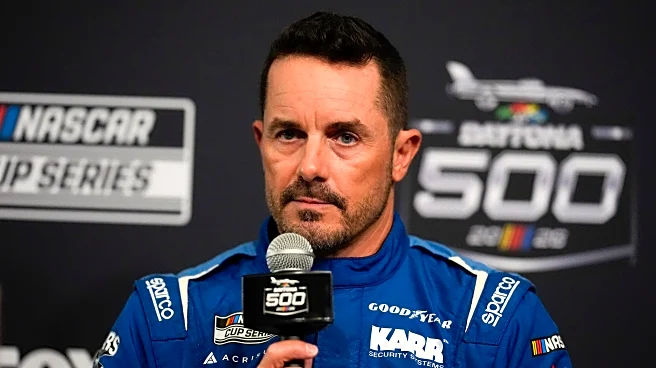Rapid Read • 9 min read
The Georgia Resilience & Opportunity Fund, an Atlanta-based nonprofit, has initiated a pilot program called Freedom Futures: Cash for Today, Capital for Tomorrow. This program aims to provide financial support and education to young adults aged 18 to 25. Participants receive a guaranteed income of $500 per month, along with a lump sum of $40,000 for wealth-building purposes. The initiative is part of a broader effort to address economic inequality and the racial wealth gap in the United States. The program is funded by philanthropy and is designed to test the effectiveness of combining financial education with direct financial support. The initiative is part of a larger movement across various states, including Georgia, New Mexico, and Connecticut, to implement Baby Bonds and guaranteed income policies as a means to build wealth and reduce poverty.
AD
The pilot program represents a significant step in addressing the persistent racial wealth gap and economic inequality in the United States. By providing young adults with financial resources and education, the program aims to empower individuals to build wealth and improve their economic prospects. The initiative highlights the potential of public policy to create equitable access to assets and capital, which are crucial for wealth-building. The program's success could influence broader policy changes and encourage the adoption of similar initiatives nationwide. Additionally, the program's funding model, which suggests restoring estate taxes to cover costs, presents a viable solution to finance such initiatives without burdening the federal budget.
The pilot program will run for four years, during which its impact on participants' financial stability and wealth-building capabilities will be closely monitored. The results could provide valuable insights into the effectiveness of combining financial education with direct financial support. If successful, the program could serve as a model for other states and potentially influence federal policy. The initiative may also spark discussions on the role of public policy in addressing wealth inequality and the racial wealth gap. Stakeholders, including policymakers and advocacy groups, will likely continue to push for the expansion of similar programs across the country.
The program's focus on young adults highlights the importance of early intervention in wealth-building efforts. By targeting individuals at a critical stage in their financial development, the initiative aims to create long-term positive impacts on their economic prospects. The program also underscores the ethical imperative of addressing systemic inequalities that have persisted for decades. As the racial wealth gap remains a significant issue, initiatives like Freedom Futures offer a promising approach to creating a more equitable society. The program's success could lead to a shift in public perception regarding the feasibility and benefits of universal basic income and similar policies.
AD
More Stories You Might Enjoy












